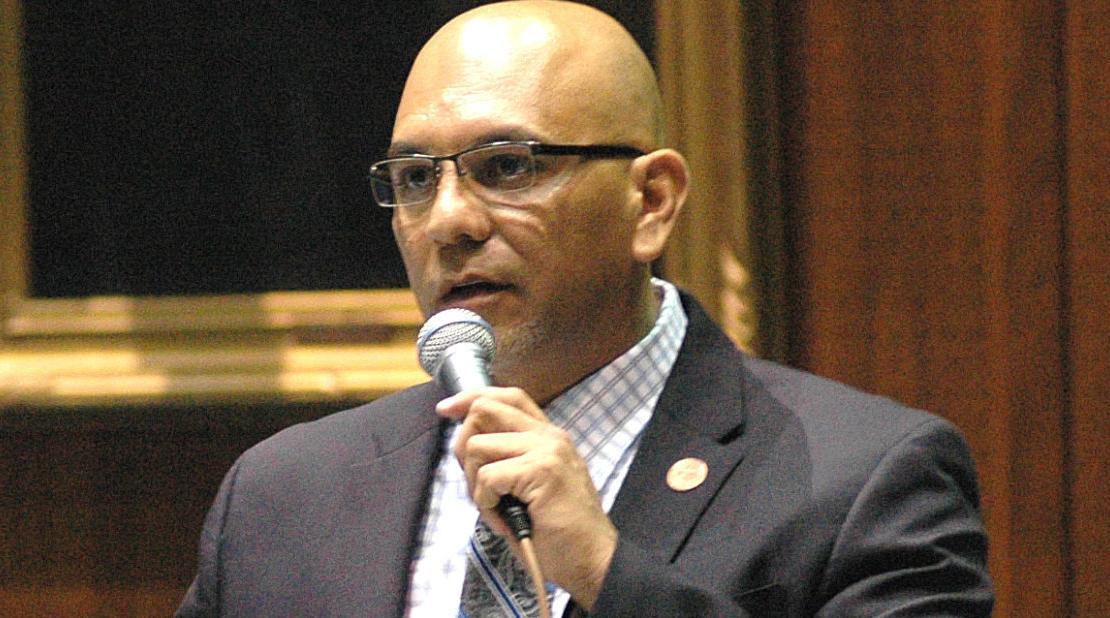PHOENIX т A lawmaker will try to force state health officials to allow the use of medical marijuana to treat autism, which they have previously rejected.
The proposal by state Rep. Diego Espinoza, D-Tolleson, would add тautism spectrum disorderт to the list of what a 2010 voter-approved law considers тdebilitating medical conditionsт for which a doctor can recommend marijuana use by patients.
Espinoza said parents want that as an option for treating some symptoms as an alternative to other medications.
House Bill 2049 also would allow the use of marijuana by people suffering from opioid use disorder. Espinoza said he sees the use of marijuana as far preferable to people dying in his legislative district from opioid overdoses.
The 2010 law allows doctors to recommend marijuana to those who suffer from certain listed conditions, ranging from cancer, glaucoma, AIDS and Crohnтs disease to seizures, severe nausea and severe and chronic pain. The law also allows state health officials to add conditions themselves if they believe it is medically justified.
People are also reading…
Parents of some children with autism made such a request two years ago only to have their plea rejected. That decision was upheld last year when a state hearing officer found the petition тfailed to provide evidence that the use of marijuana will provide therapeutic or palliative benefit to an individual suffering from ASD.т
Espinozaтs bill would eliminate the need for health department approval or medical studies, by getting legislators to add autism into the list of permitted conditions in the УлшжжБВЅ Medical Marijuana Act. Bypassing the department does not bother him, he said.
He pointed out that Colorado Gov. Jared Polis signed legislation earlier this year adding autism to the list of conditions for which medical marijuana can be recommended.
тIn Colorado there are families that actually have results based on what their children have been experiencing by taking that medical marijuana,т Espinoza said. He said it appears to be a better alternative than other medications now available that can have side effects.
тSo how could you deny, especially a parent thatтs willing to try that ... (to) transition into this alternative to see if that would be a better alternative for them?т Espinoza asked.
He is not deterred by the lack of studies, of the type the УлшжжБВЅ health department recognizes, proving that marijuana is effective in helping children with autism.
тI can share with you that I have worked with constituents in my district (and) that their sons and daughters in that realm have had tremendous results,т Espinoza said. тIтve actually seen it first hand.т
He acknowledged that УлшжжБВЅ parents are already able to obtain medical marijuana for children who are having seizures, a side effect for some with autism. Seizure already is one of the conditions for which the 2010 law permits medical use.
The use of marijuana to help those addicted to opioids is a different matter. There is no evidence anyone has petitioned the health department to add that condition to the list for which marijuana use is legally permitted.
тI have overdoses in my community it seems like every day,т Espinoza said. тAnd so if marijuana could be an alternative to help wean them off, then why not try that?т
Backers of expanding the medical use of marijuana will need to generate a great deal of support to get HB 2049 enacted into law.
The original 2010 law, having been approved by voters, can only be altered with a three-fourths vote of the Legislature. That means 23 of 30 senators and 45 of 60 representatives.



















